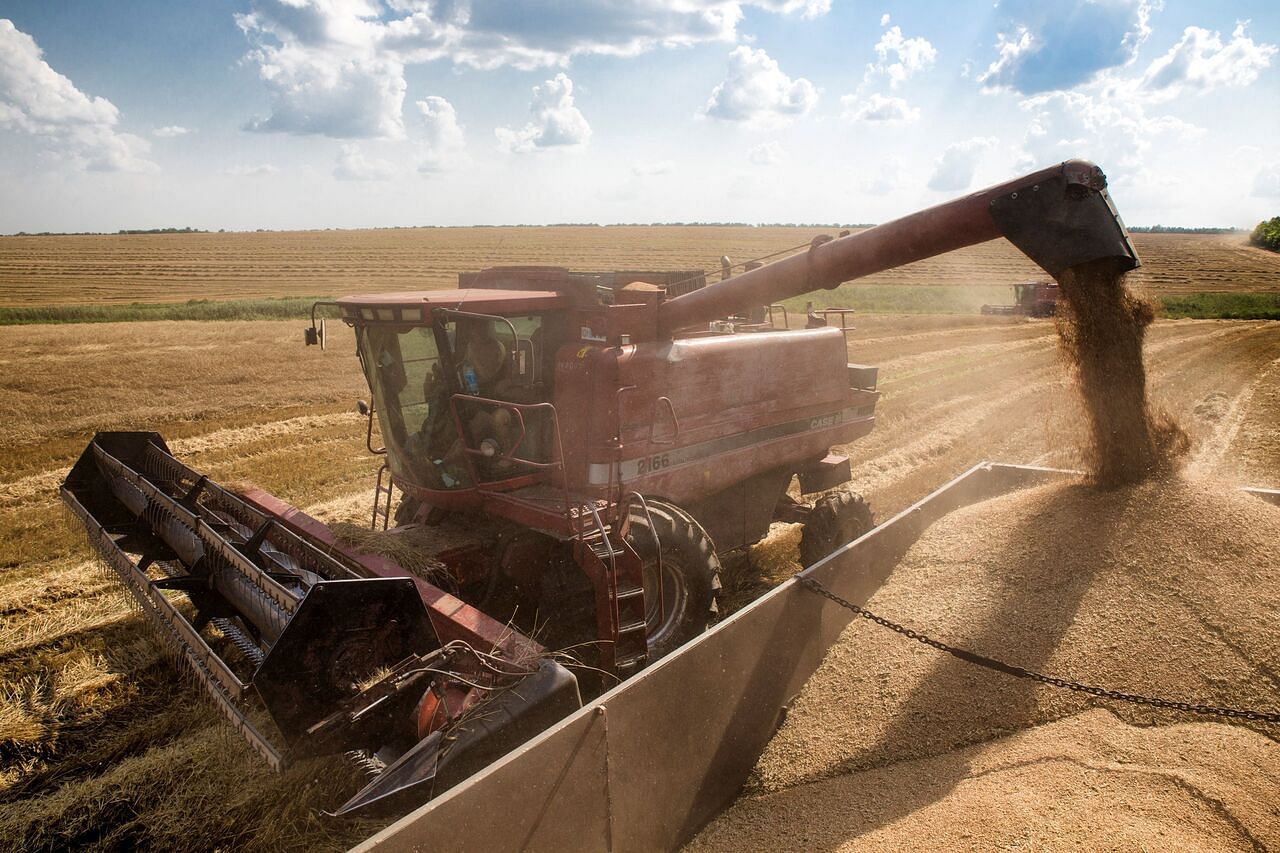Europe takes steps to help Ukraine's food exporters get around blockade
Sign up now: Get ST's newsletters delivered to your inbox

Russia's blockade of Ukraine's Black Sea ports is leaving 40 million tonnes of grain stranded in the country.
PHOTO: REUTERS
BRUSSELS (NYTIMES) - The European Union announced a set of measures on Thursday (May 12) to facilitate Ukraine's exports of blocked food products, mainly grain and oilseeds, in a bid to alleviate the war's strain on the Ukrainian economy and avert a looming global food shortage.
Before the Russian invasion, Ukraine was a major global food exporter: it produced 12 per cent of the world's wheat, 15 per cent of its corn and 50 per cent of its sunflower oil. The war has disrupted global supply chains and sent prices for agricultural goods soaring, exposing several countries, especially in Africa, to food shortages.
The Russian navy has blocked Ukraine's Black Sea ports, where 90 per cent of the country's grain was exported, leaving 40 million tonnes of grain stranded in the country. Ukraine is "sitting on €8 billion (S$12 billion) worth of wheat right now" that cannot be shipped abroad, Werner Hoyer, the president of the European Investment Bank, told reporters earlier this week.
Adina Valean, the bloc's transport commissioner, acknowledged the complexity of the challenge. "The problem we are trying to solve is in no way regional or European, but global," she said on Thursday. "The task before us is gigantesque."
The long term goal of the European Commission, the bloc's executive branch, is to establish new transport routes from Ukraine into Europe, circumventing the Russian blockade.
Speaking in Poland on Tuesday, the bloc's agriculture commissioner, Janusz Wojciechowski, told reporters that the main solution was to establish "corridors to Baltic Sea ports", specifically mentioning Poland's seaside cities of Gdansk and Gdynia.
But creating new routes could take months, if not years, and according to the commission 20 million metric tonnes of grain have to be urgently transported out of Ukraine in the next three months before the next harvest.
Valean told reporters on Thursday as she presented the measures that the European Commission cannot substitute for EU operators or for Ukraine's grain sellers. "But what we can do is to help put the two in touch and design new links between Ukraine's borders and EU ports," she said.
To ramp up exports through existing routes, the commission said on Thursday it would work with producers on increasing availability of equipment, such as train wagons, barges and lorries, as well as mobile grain loaders. The bloc's executive branch also called on national governments to give priority to Ukrainian freight trains and simplify custom procedures for Ukrainian products. It also promised to expand storage capacity for Ukrainian products inside the bloc.
In the absence of the Black Sea route, Ukrainian grain and oilseeds are now being exported through existing road and rail connections into Poland and Romania.
But these routes are not fit for transporting such large volumes of produce, which creates a series of complex logistical challenges for transport companies and national authorities, both inside the bloc and in Ukraine.
One major obstacle is the difference in the gauge of railway tracks between Ukraine and EU countries, forcing producers to change trains every time they cross the border. Currently, the average waiting time for wagons transporting goods from Ukraine into the bloc is 16 days, going up to 30 days at certain border crossings.
The United Nations secretary-general said on Tuesday that he was "deeply concerned" about the consequences of Russian aggression on global food supply, warning of the risk of hunger becoming "widespread in different parts of the world".
An independent group, the International Panel of Experts on Sustainable Food Systems, raised a similar alarm in a report last week, calling the war "another perfect storm" that could cause a significant global food crisis.


